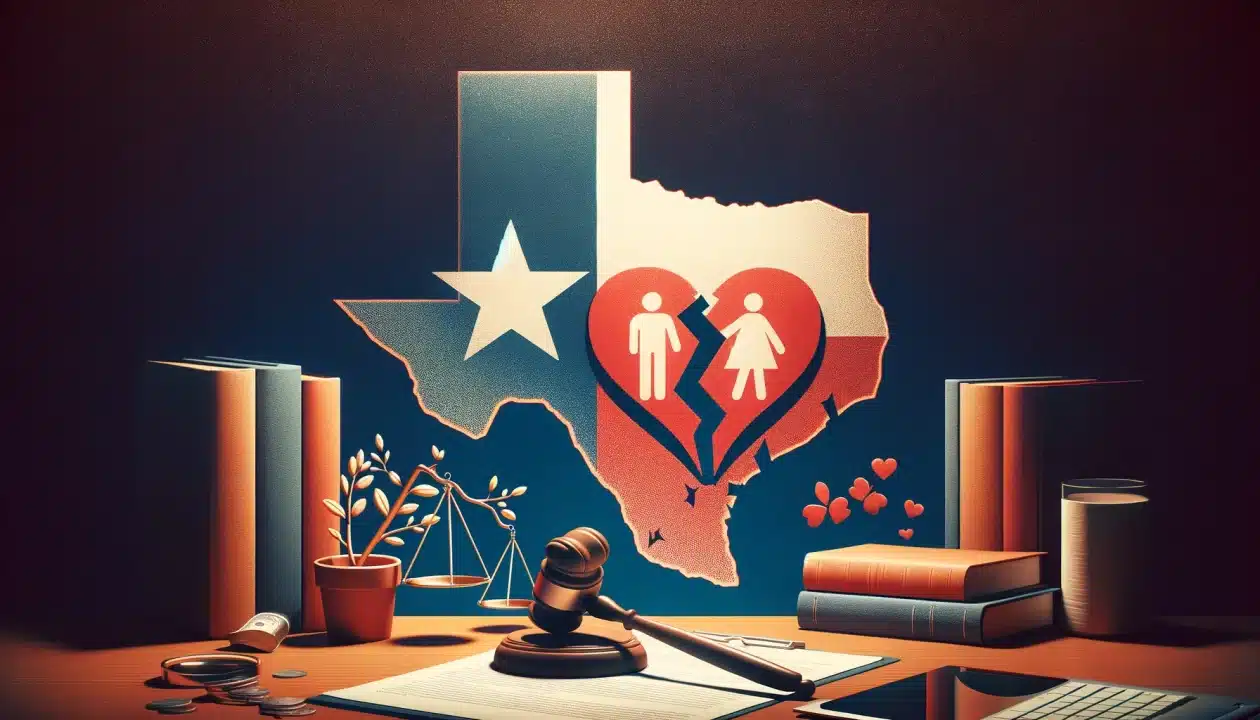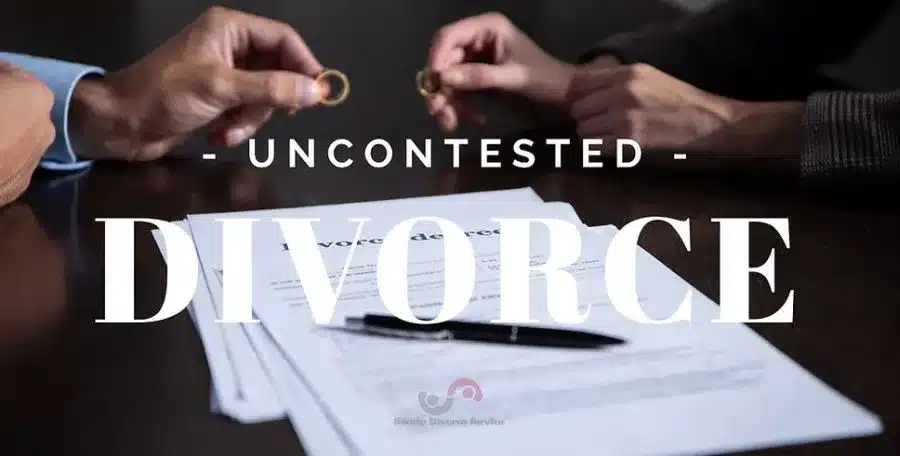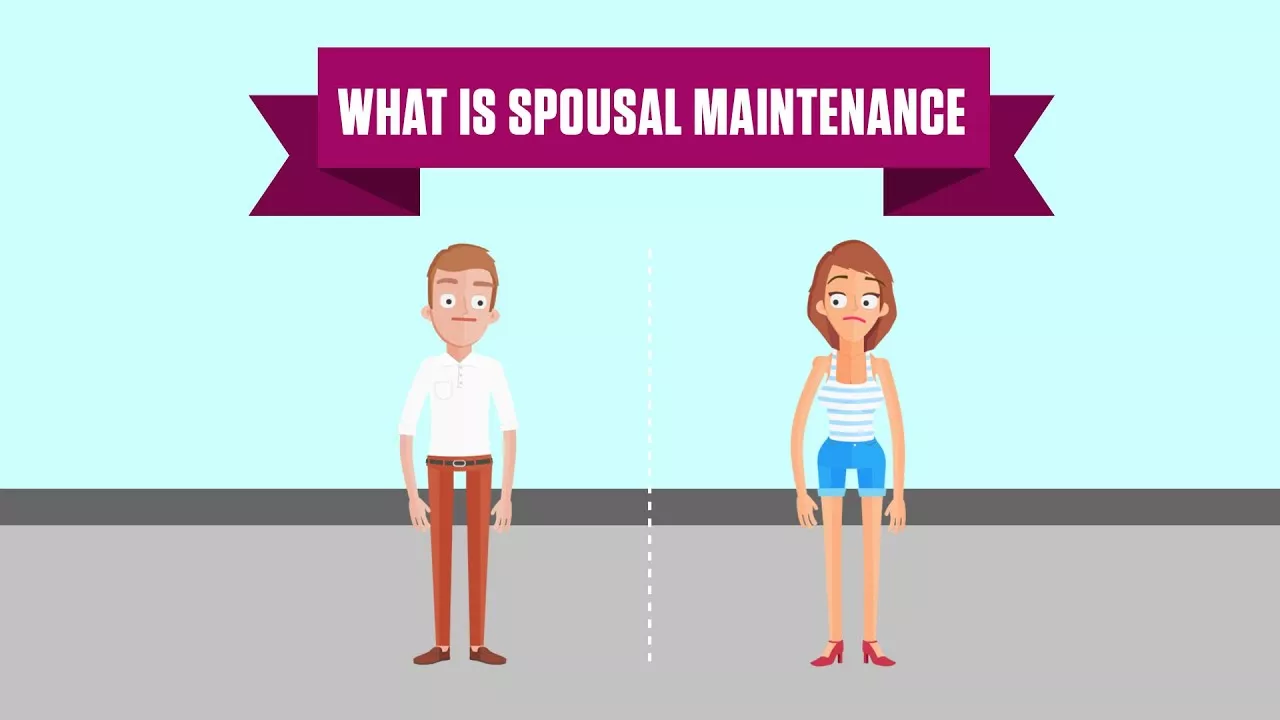In Texas, the divorce process can be complicated, and everyone has questions. In Texas, the most frequently asked questions concern the law and actual procedures. All divorces in Texas are filed and finalized in the appropriate district court.
Uncontested Divorce Process
During a Texas divorce, the court will issue a final order (decree). This decree divides the couples’ property, debt, and includes orders for spousal maintenance if warranted.
Likewise, if there are minor children, the court will determine custody (conservatorship), visitation, and child support.
The articles that follow explain the relevant laws and processes in Texas. The articles are organized by category so that you can read multiple articles on a single topic.
Petition for Divorce
In Texas, a Petition for Divorce is a legal document. When filed with the appropriate district court, it initiates a dissolution of marriage proceeding with the court.
The petition must be filed with the district court in the County where either spouse has resided for at least 90 days. In order to file a petition for divorce in Texas, either spouse must have been a resident of Texas for at least six months.
A petition for divorce does not end the marriage. To finalize and complete a divorce, a judge must sign a final divorce decree. The spouse who filed the petition may withdraw it at any time before the judge signs the final decree. Except in cases of domestic violence, no judge can sign a final divorce decree until at least 60 days has passed from the time the petition was filed with the court.
Forms for a Divorce Without Children
As a general rule, an uncontested divorce in Texas usually contains the following documents. However, the following list may not be complete for your personal situation and circumstances.

The common documents and filing procedure for an Uncontested Divorce:
- Prepare the Original Petition for Divorce
One of the first steps to getting a divorce is ensuring you meet the requirements to start a divorce process in Texas. Next, fill out and complete the Original Petition for Divorce. Depending on the county of filling, you may need a copy of the standing orders.
- File the Original Petition for Divorce
Prepare to file the Original Petition for Divorce at the courthouse of the county you reside in. See Texas Fam. Code Section 6.301 for residency rules. Determine whether you qualify to waive the court costs and fees or if you need to pay those fees. Documents needed for the filing, Petition of Divorce / Standing Orders / County Court Specific Cover Sheet.
**If this is an option, you can file it via EFileTexasCourts official website. - After Filing the Petition for Divorce
Next, as soon as you are done with filing, you will have to serve the copies of the papers you initially filed on your spouse. If you file for an agreed divorce in Texas, your spouse may agree to sign and have notarized a Waiver of Service and file the respective form. Depending on the situation of the divorce your spouse may need to complete a Respondent Original Answer.
- Drafting a Final Decree of Divorce
Making a divorce settlement agreement is an important step for couples who seek to end their marriage amicably. All the conditions you agree upon will be recorded in the divorce settlement agreement form drafted by a lawyer. If you have known from the get-go that your divorce is uncontested, your agreements will likely already be included in other forms, and you won’t require a settlement agreement.
Generally, you and your spouse will have to reach a consensus on:
How to split your assets and debts.
How to divide your property. (since there is no separate divorce property settlement agreement in Texas)
Where and with whom your children will live, and how you can split the parenting time.
Who gets the custody, and who pays child support.
Whether there is a need to pay spousal support.
Prepare an Affidavit of Name Change. (if applicable)
Provide all the required documents to the court/clerk for review. The court may require you to wait 60 days before submitting your Final Decree of Divorce. - Attending the Final Divorce Hearing
As soon as the waiting period (60 days) is over, contact the court clerk to schedule the final hearing date. What to expect in your final divorce hearing on your trial day in Texas? If your case is uncontested and you have all your paperwork in order, the hearing won’t take long. You will have to answer a few questions from the judge, and after that, they will grant you a divorce. Some courts may not require a hearing and instead request for an Affidavit of Prove Up in place for your physical appearance in court to finalize your case. One of the last forms to be turned in with your Final Decree of Divorce is a Suit Affecting Family Relationship Form.
The judge will check that the terms recorded in the agreement/decree are fair to all the parties, including children, and approve the Final Decree of Divorce if all is good.
Need help with divorce?
Ready Divorce Service – (800) 432-0018
Forms for a Divorce With Children
If you have children and are divorcing, you will need documents and/or legal language to address child custody, parental visitation, and child support. Under Texas law, a “Parenting Plan” must be included with the Final Decree of Divorce. The Parenting Plan includes the conservatorship (custody) rights of the parents, the visitation schedule, the child support, and also provides for other issues that may affect the child.
As a general rule, an uncontested divorce case with children usually contains the following documents. Yet, the following list may not be complete for your personal situation and set of circumstances.
The common documents are:
- Original Petition for Divorce
- Waiver of Service
- Affidavit of Name Change (if applicable)
- County Court Specific Cover Sheet and related documents/forms
- Suit Affecting Family Relationship Form
- Standing Order
- Final Decree of Divorce
- Possession Order
- Final Hearing Testimony / Prove Up
In cases involving the division of certain retirement accounts, the court may require a Qualified Domestic Relations Order (QDRO). There could also be additional documents that are wise to complete as part of the divorce process but not required by or submitted to the court. One common example is a warranty deed, since in Texas, a quitclaim may not be enough. This document is used when one spouse is awarded real property (house/land). It transfers the other spouse’s interests in the property to the spouse awarded the real property.
The bottom line is that there are a number of factors that determine what documents are needed in any divorce case. Additionally, it determines what language should or shouldn’t be contained in the required documents.
Get help with divorce: Texas Uncontested Divorce
Common-law Marriages in Texas
In Texas, common-law marriage is referred to as an “Informal Marriage.” In order to obtain divorce for an Informal Marriage in Texas, the person who files for divorce must first prove that the spouses are actually informally married.
There are two ways to prove an informal marriage:
- By providing a certified copy of a Declaration and Registration of Informal Marriage:
If you have officially filed this document with the county clerk, with both spouses agreeing that you are informally married, a copy of this document is sufficient to get a divorce in Texas. - By proving you have lived together, agreed to be married, and have held yourselves out to others as being married:
It is much more difficult to prove an informal marriage by these means. You must provide the court physical proof that you have been living together. Additionally, you must provide physical proof that you have agreed to be married and that you have held yourself out to others as married. This would be documentation such as leases, contracts, testimony of witnesses, etc. that show that you have called each other husband and wife, signed your name as Mr. and Mrs., referred to each other as “my husband,” and “my wife,” etc.
Additionally, Texas does not recognize an informal marriage if either spouse is under the age of 18.
Same Sex Divorce in Texas
Texas laws and courts are currently “in limbo” regarding same sex divorce. As more and more states begin recognizing same sex marriages, legislatures will need to catch up. They will need to put more laws on the books to address issues of divorcing same sex couples.
In October of 2009, a Dallas County judge ordered the divorce of a same sex couple. This sparked ongoing debate and further legal battles over the issue. Her ruling has been overturned by an appellate court in Texas. However, a separate appellate court in Texas upheld a divorce of a same sex couple in another county. Essentially, until the Texas Supreme Court and/or the United States Supreme Court makes an ultimate decision on this issue, there is no law that allows for the divorce of same sex couples in Texas. It is expected that the Texas Supreme Court will make a ruling on the matter in the near future.






